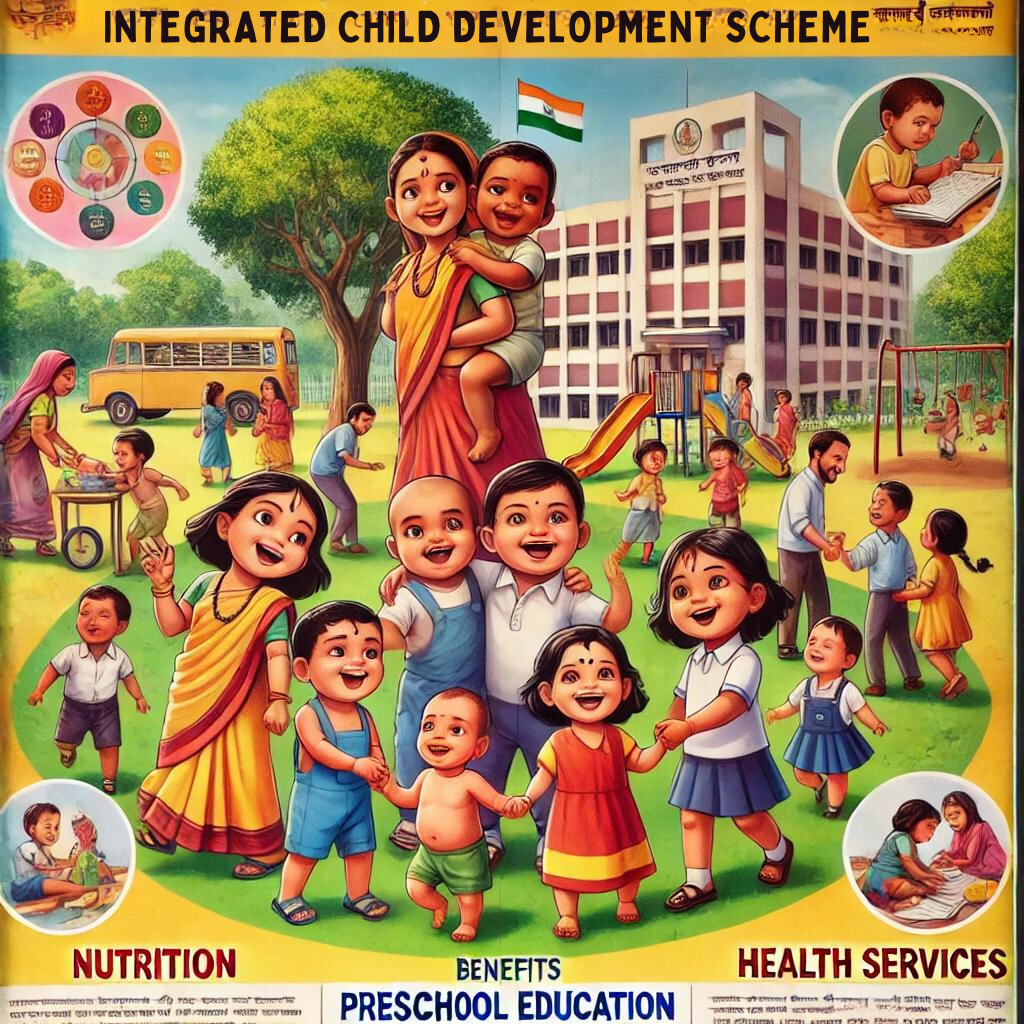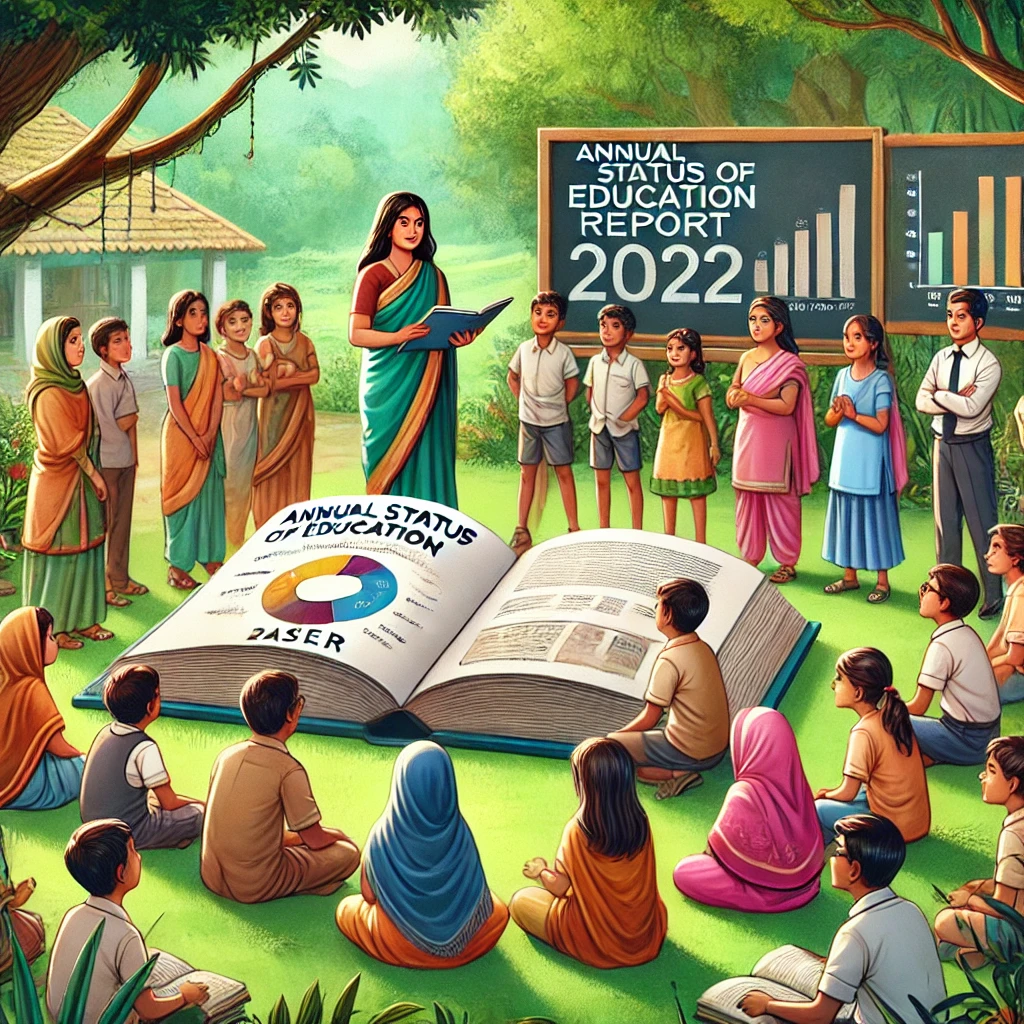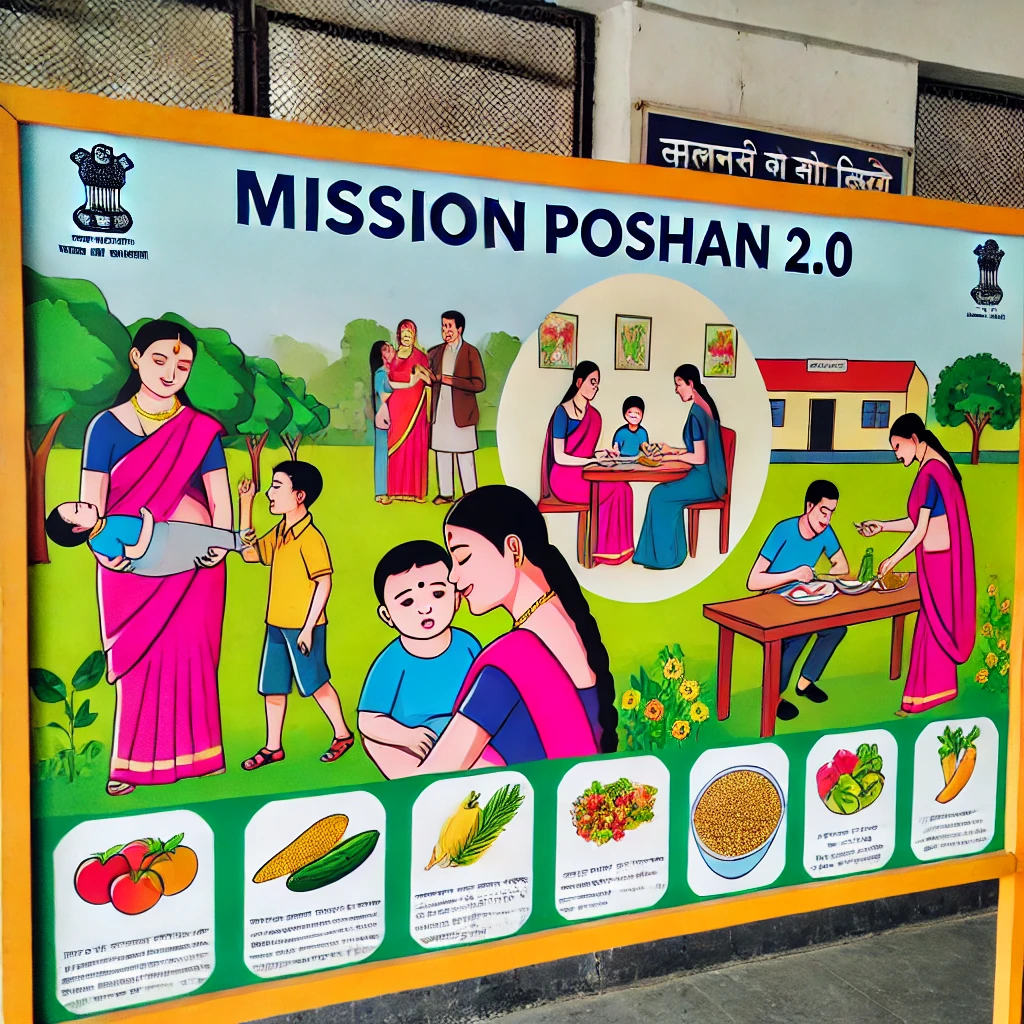The Integrated Child Development Scheme (ICDS) is an initiative taken by the Indian government. It is aimed at improving the health and nutrition of children and women. Recently, the Maharashtra government introduced a Migration Tracking System (MTS) to ensure that migrant workers and their families continue to receive ICDS benefits like nutrition, immunization, and health check-ups. This development highlights the significance of ICDS in providing essential services to vulnerable populations, particularly during migration.
- ICDS incorporates unique programs for early childhood care and development.
- The beneficiaries under the Scheme are children in the age group of 0-6 years, pregnant women, and lactating mothers.
- The scheme mainstreams out-of-school girls to join formal schooling bridge courses, skill training, life skill education, home management, etc, and counseling/ guidance on accessing public services.

What is Integrated Child Development Services (ICDS)?
The Integrated Child Development Services (ICDS) is a centrally sponsored scheme by the Ministry of Women and Child Development. It was launched in 1975. The primary goal of ICDS is to provide complete welfare to children and mothers. It focuses on early childhood care and development, aiming to improve the nutritional and health status of children up to six years old. Moreover, it enhances the capability of mothers to care for their children’s basic health needs.
Schemes Under ICDS
The ICDS umbrella comprises several schemes targeting various beneficiaries, each offering specific core services. These schemes are designed to address the multifaceted needs of children, pregnant women, lactating mothers, and adolescent girls. Thus, ensuring holistic development and well-being.
Anganwadi Services Scheme
The Anganwadi Services Scheme is a pivotal program under ICDS, catering to children up to six years, pregnant women, and lactating mothers. It provides six essential services: supplementary nutrition, preschool non-formal education, nutrition and health education, immunization, health check-ups, and referral services. These services, including Take Home Ration (THR), hot-cooked Cooked Meals, and morning snacks, play a significant role in improving nutritional outcomes for vulnerable households.
Pradhan Mantri Matru Vandana Yojana
Pradhan Mantri Matru Vandana Yojana offers a cash incentive of Rs. 5,000 to pregnant and lactating women, distributed in three installments directly to their bank accounts via DBT (Direct Benefit Transfer). This scheme aims to support women during pregnancy and lactation, ensuring they receive adequate nutrition and care by fulfilling specific conditions.
National Creche Scheme
The National Creche Scheme provides daycare facilities for children aged six months to six years, catering to working women. These facilities operate for seven and a half hours a day, 26 days a month, offering supplementary nutrition, early childcare education, and health and sleeping facilities.
Scheme for Adolescent Girls
The Scheme for Adolescent Girls targets out-of-school girls aged 11-14, aiming to empower and improve their social status through nutrition, life skills, and home skills. It includes nutritional support, iron and folic acid supplementation, health check-ups, education on nutrition and health, mainstreaming into formal schooling, skill training, and counseling on accessing public services.
Child Protection Scheme
The Child Protection Scheme aims to enhance the well-being of children in difficult circumstances and reduce vulnerabilities to abuse, neglect, exploitation, abandonment, and separation from parents. The scheme focuses on creating a safe and supportive environment for children, ensuring their protection and development.
POSHAN Abhiyaan
POSHAN Abhiyaan targets the reduction of stunting, undernutrition, and anemia among children, adolescents, and mothers. It focuses on improving nutritional outcomes, reducing low birth weight, and addressing malnutrition among young children, adolescent girls, pregnant women, and lactating mothers. This initiative is crucial for achieving better health and development indicators across these groups.
Major Objectives of ICDS
The ICDS aims to improve child health and development through several primary goals. These objectives focus on enhancing the nutritional and health status of children, promoting psychological, physical, and social development, reducing mortality and malnutrition, ensuring effective policy coordination, and empowering mothers and adolescent girls.
ICDS pursues multiple objectives including:
- Improving the nutritional and health status of children aged 0-6 years.
- Promoting proper psychological and physical development.
- Reducing mortality, morbidity, malnutrition, and school dropouts.
- Achieving effective policy coordination and enhancing maternal capabilities.
- Empowering adolescent girls to become self-reliant and aware citizens.
Other Similar Government Schemes
Several other government schemes complement the objectives of ICDS, focusing on child and maternal welfare. These schemes are designed to address various health, nutrition, and educational needs. Thereby, contributing to the overall development and well-being of children and mothers.
National Health Mission (NHM)
Launched in 2013, the National Health Mission (NHM) subsumed the National Rural Health Mission and National Urban Health Mission. Implemented by the Ministry of Health & Family Welfare, NHM focuses on the health system in rural and urban areas. Particularly reproductive, maternal, neonatal, child, and adolescent health (RMNCH+A), and tackling communicable and non-communicable diseases.
Mid-Day Meal Scheme
The Mid Day Meal Scheme was initiated in 1995. It is a centrally sponsored program providing hot-cooked meals to children aged six to fourteen years, studying in classes I to VIII. Mid Day scheme was administered by the Education Ministry. The scheme aims to improve enrollment, attendance, and nutritional levels among school children, promoting better educational outcomes.
National Nutrition Strategy
The National Nutrition Strategy, released by NITI Aayog, aims to reduce all forms of undernutrition by 2030, focusing on the most vulnerable groups. It aligns with the Sustainable Development Goals related to nutrition and health. Thereby, striving to ensure that critical age groups receive adequate nutritional support and care for holistic development.
Conclusion
The Integrated Child Development Scheme (ICDS) stands as a cornerstone of India’s commitment to social justice and child welfare. Recent initiatives like the Migration Tracking System (MTS) underscore the importance of ensuring uninterrupted access to essential services for migrant families. As future civil servants, it is imperative to recognize and support such schemes, which play a crucial role in shaping an equitable and healthy society.


